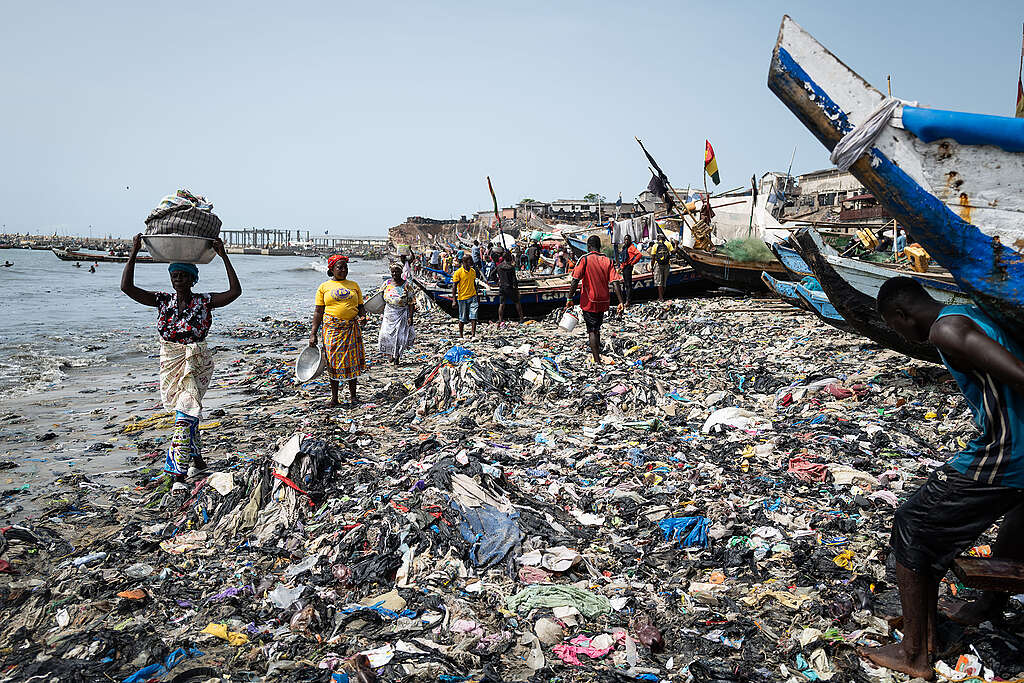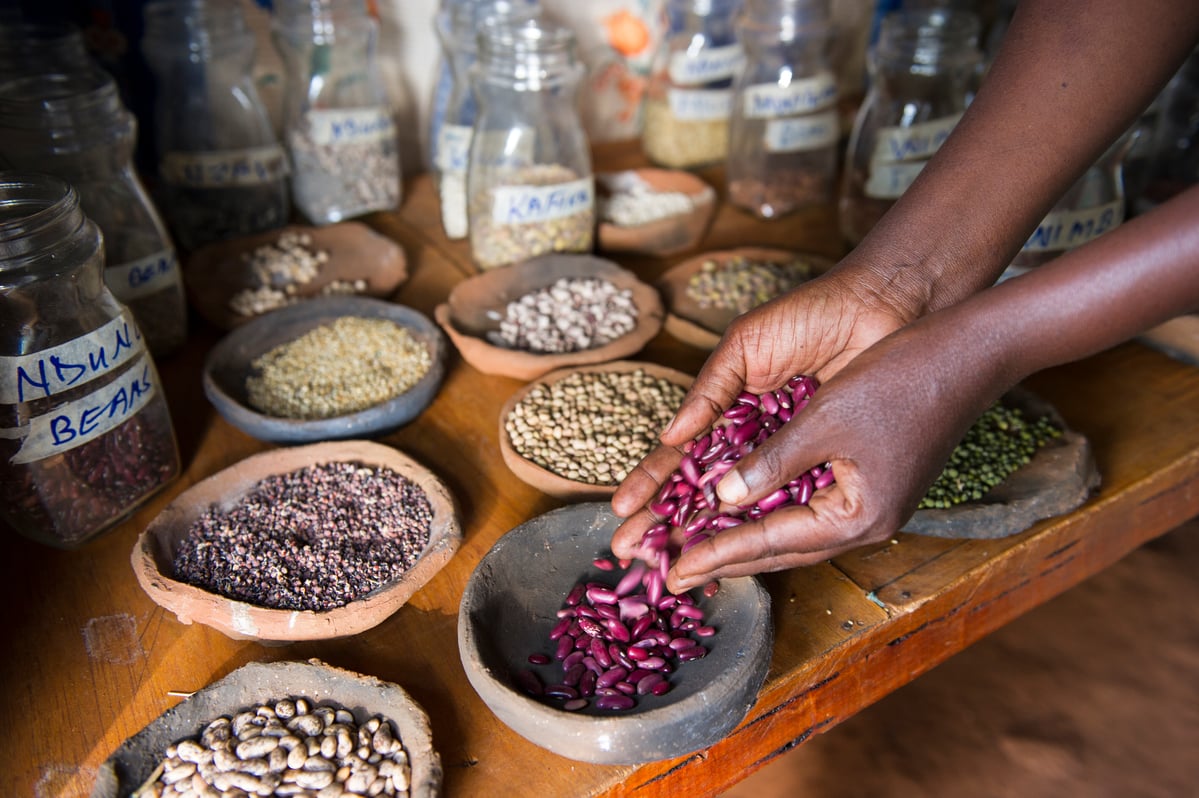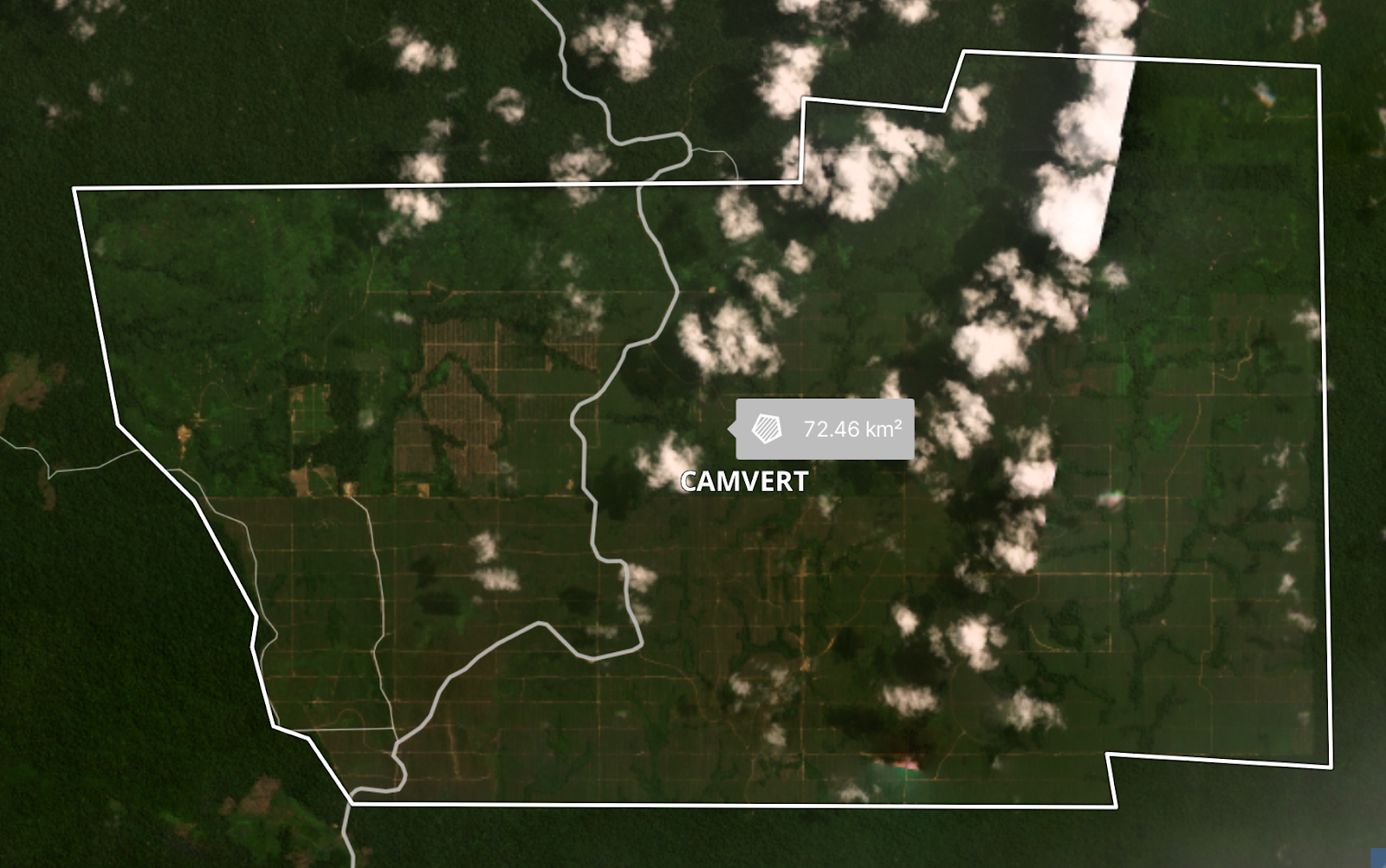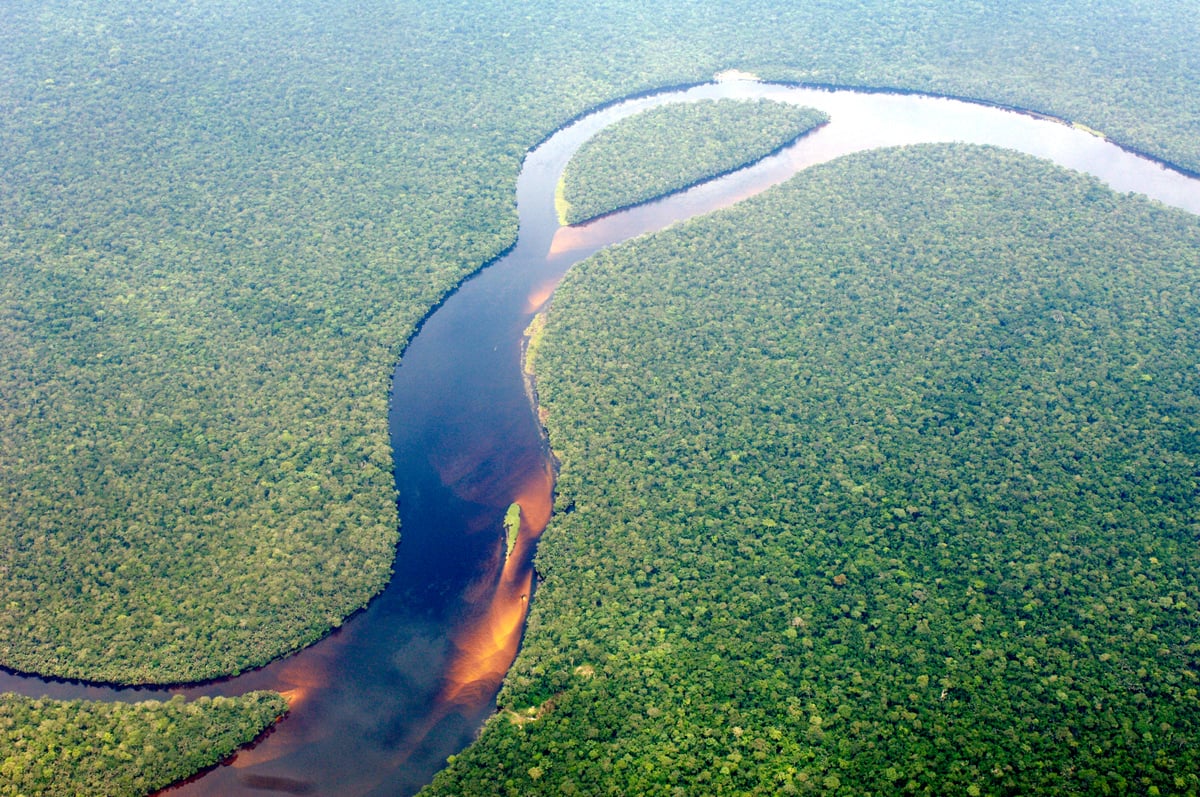
Enough is enough! Instead of importing the Global North’s fast-fashion waste problem let’s put African solutions first. Will you sign the petition now?
Get InvolvedAccra, Ghana, September 11, 2024 – A new report by Greenpeace Africa and Greenpeace Germany has revealed the alarming scale of environmental and public health damage caused by the global second-hand clothing trade in Ghana. The report, titled “Fast Fashion, Slow Poison: The Toxic Textile Crisis in Ghana,” exposes the devastating impact of discarded clothing from the Global North, much of it fast fashion, on the environment, communities, and ecosystems in Ghana.
Every week, approximately 15 million items of clothing are received in Ghana, but nearly half of these clothes are unsellable. Many used clothes end up in informal dumpsites or burned in public washhouses. This has led to severe contamination of air, soil, and water resources, putting the health of local communities at risk.
Key Findings:
- Air Pollution: Greenpeace air samples from public washhouses in Accra’s Old Fadama settlement show dangerously high levels of toxic substances in indoor air, including carcinogens like benzene and polycyclic aromatic hydrocarbons (PAHs).
- Plastic Pollution: Infrared testing of discarded clothing revealed that nearly 90% are made of synthetic fibers like polyester, contributing to the spread of microplastics in the environment.
- Environmental Degradation: The accumulation of textile waste is smothering natural habitats, polluting rivers, and leading to the creation of ‘plastic beaches’ along the coast.
Hellen Dena, Greenpeace Africa’s Pan-African Plastics Lead, said:
“This report is a wake-up call. The toxic waste dumped in Ghana is not just an environmental issue, it is a stark example of environmental injustice recklessly carried out by the Global North. Fashion brands and governments must take immediate responsibility for the damage their waste is causing in countries like Ghana.”
The report author, Sam Quashie-Idun highlighted the broader implications of the findings.
“The evidence we have collected shows that the fast fashion industry is not just a fashion issue—it’s a public health crisis. The clothes we tested are literally poisoning the people of Accra.” said Quashie-Idun
“The situation in Ghana reflects a neocolonial mindset where the Global North profits from overproduction and waste, while countries like Ghana pay the price. It’s time for a global treaty that addresses this imbalance and protects communities from the harm caused by fast fashion.” added Quashie-Idun
Greenpeace Africa’s campaigners have called for immediate and long-term actions to address this crisis:
“ We call for a ban on the importation of dead waste. The Ghanaian government must take urgent legislative action to stop the importation of textile waste from the Global North. The government should only import clothes that can actually be reused as wearable clothing. Fashion brands must be held accountable for the full lifecycle of their products, including waste disposal and recycling, under a global EPR (Extended Producer Responsibility)” said Dena
Quashie-Idun, on his part, called for urgent support for local solutions: “The Ghanaian government together with the international community should support the development of a sustainable local textile industry in Ghana, which can alleviate the waste problem while providing economic opportunities.” he said.
Greenpeace Africa urges the Global North to listen to the voices of the people in Ghana and work collaboratively to develop solutions that are fair, sustainable, and free from the legacy of exploitation.
For more information, please contact:
Ferdinand Omondi, Communication and Story Manager, Greenpeace Africa
Email: [email protected]
Greenpeace Africa Pressdesk:

Enough is enough! Instead of importing the Global North’s fast-fashion waste problem let’s put African solutions first. Will you sign the petition now?
Get Involved


